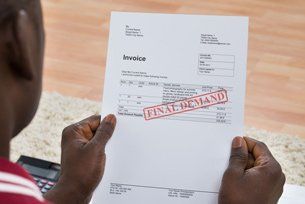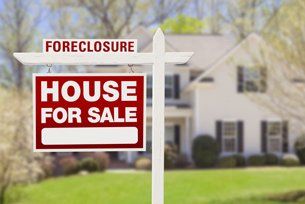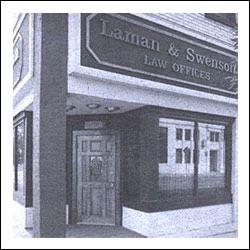Chapter 7 Bankruptcy Help
FREE Consultations | 45+ Years of Experience | Locally Owned
FREE Consultations 35+ Years of Experience Locally Owned
Keep Your Property With Our Experienced Help
The Swenson Law Group specializes in assisting people with financial issues. Attorney Evan Swenson and his staff have built a strong reputation for protecting the rights of clients ethically and competently while strictly specializing in bankruptcy and debtor / creditor law, all while giving your case the personal attention it needs.
The Chapter 7 bankruptcy is the most common type of personal bankruptcy filed, and for good reason. It's fast, effective and generally less complicated than other types.
People often fear Chapter 7 bankruptcy due to the possibility of losing their valuable property. However, in most cases, this is not true. Most debtors can keep the property they own.
If you think filing Chapter 7 bankruptcy is right for you, contact attorney Evan Swenson, for your FREE case evaluation.
Reasons You May Consider Chapter 7 Bankruptcy
#1: You Lack a Regular Income
The Chapter 7 bankruptcy is a liquidation plan. This means that all unsecured creditors will be wiped out in a discharge of debt. In most instances, you will be able to keep your home, vehicles and personal property.
However, non-exempt assets can be liquidated to pay off your creditors. Unless you have significant non-exempt assets, you don't need to worry about losing any property. A great majority of Chapter 7 bankruptcy cases do NOT involve assets of the debtors that are liquidated to creditors.
#2: You Have a Significant Amount of Debt
When you have a large amount of debt you cannot pay, filing Chapter 7 bankruptcy may be your best option. The Chapter 7 bankruptcy does not have a limit on how little or how much debt you are allowed to eliminate.
Most debtors who file Chapter 7 bankruptcy can discharge a large amount of debt. These debts may include credit cards, medical bills and certain unsecured banking loans. Keep in mind there are some debts that may not be dischargeable, such as student loans, child support and most taxes.
#3: You Desire a Quick Resolution
The Chapter 7 bankruptcy is designed to be a relatively quick process, most often taking only three to four months to obtain a discharge from the court. This process allows you to keep your personal property and provides a fresh financial start.
#4: Your Assets Are All Exempt Assets
If all your assets are considered to be exempt, your case will be filed as a non-asset case. This means that you're able to obtain a discharge of debt without losing any of your possessions.
Certain assets are considered exempt from liquidation under the Federal Bankruptcy Code. Some states have granted additional exemptions for certain assets. When you file for Chapter 7 bankruptcy, you can keep your exempt assets.
Most cases that are filed fall under the exempt category. Wisconsin bankruptcy law also allows you to choose between federal and state exemption statutes. Attorneys Mart and Evan Swenson are experienced at determining what assets may present problems and offer potential solutions to those problems.
#5: You Want to Stop Harassing Phone Calls and Other Collection Actions
Once you retain the Swenson Law Group, all creditor calls will be handled by our office. After you file your bankruptcy petition, you are granted an automatic stay. This means that wage garnishments, repossession actions, utility disconnections and civil collection notices must cease.
While this stay is not necessarily permanent, it can offer you relief from those harassing creditor calls while you get your finances in order and develop a financial plan of action.

Know Your Options and Protect Your Rights
If you’re facing foreclosure, harassing creditor calls, wage garnishments, lawsuits or the inability to meet your financial obligations, bankruptcy or debt settlement may be your only way out.
Put an end to the everyday pressure of bill collectors or the stress of losing your home. The Swenson Law Group can assist you with its knowledgeable and skilled team in helping you make the correct choice.
Contact Us
DISCLOSURE: The use of the Internet or this form for communication with the firm or any individual member of the firm does not establish an attorney-client relationship. Confidential or time-sensitive information should not be sent through this form.

Chapter 7 bankruptcy, also called personal bankruptcy or liquidation bankruptcy, is for individuals and small businesses seeking to eliminate their debt through the liquidation.
Need help?
Call us at 800-934-0334 for a FREE consultation.



